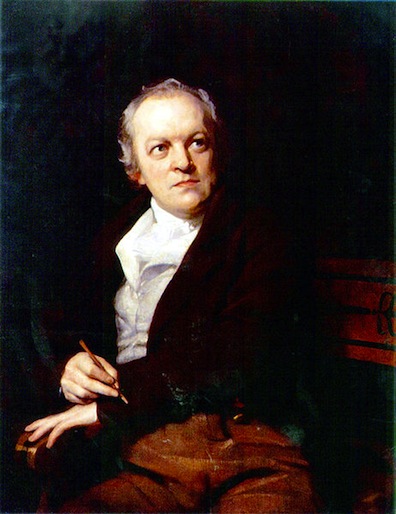"Fabled by the daughters of memory" recalls
plate 2 of A Vision of the Last Judgment. There
Blake writes that "Fable or Allegory is Form'd by the
daughters of Memory"––the nine Muses descended from
Mnemosyne––while "Imagination is surrounded by the daughters
of Inspiration, who in the aggregate are call'd Jerusalem."
Empirical understanding—knowledge based on memory—is a mere
"Fable" in Blake's estimation, while imagination yields what
he calls "Vision" of "The Last Judgment." For Blake, this
Christian myth is not a mere fiction but something that
"Eternally Exists, Really & Unchangeably." In his 1902
lecture on James Clarence Mangan, a man
whose "poetry remembers wrong and suffering and the aspiration
of one who has suffered and who is moved to great cries and
gestures when that sorrowful hour rushes upon the heart,"
Joyce described poetry as "a revolt, in a sense, against
actuality" and held that "it makes no account of history,
which is fabled by the daughters of memory."
In Nestor Stephen imagines that Blake's visionary
imagination offers an alternative to the naked assertions of
power that dismally define history. But the Aristotelian
empiricist in him immediately counters, "And yet
it was in some way if not as memory fabled it." The
world is more than the mind's conception of it: actual things
happened to produce the reality that now enslaves him. As
Stephen thinks a few paragraphs later, "They are not to be
thought away. Time has branded them and fettered they are
lodged in the room of the infinite
possibilities they have ousted."
"A phrase, then, of impatience, thud of Blake's wings
of excess": one of the devils' Proverbs in The
Marriage of Heaven and Hell holds that "The road of
excess leads to the palace of wisdom," and another one that
"No bird soars too high, if he soars with his own wings."
Blake has characteristically overshot the mark, Stephen
thinks, and his wings of excess strike the ear––and perhaps
fall to earth––with a thud.
But Stephen is enchanted by the language of apocalyptic
transcendence, and will remain so throughout the novel. Blake
also writes in The Marriage of Heaven and Hell that
"The ancient tradition that the world will be consumed in
fire at the end of six thousand years is true, as I
have heard from Hell." And when that fiery consummation
occurs, "the whole creation will be consumed and appear
infinite and holy, whereas it now appears finite &
corrupt." Thornton notes that Blake wrote in a letter to
William Hayley in 1800 that "The ruins of Time build mansions
in Eternity." He cites other passages about the fiery end of
the world from A Vision of the Last Judgment.
Stirred by this vision, Stephen thinks of "the ruin of
all space, shattered glass and toppling masonry, and time
one livid final flame."
The image of buildings shattering and toppling does not come
from Blake's writings. Gifford obscurely connects these words
to "a vision of the fall of Troy, a lost cause not unlike the
efforts of the Tarentines under Pyrrhus to resist the
domination of Rome." The association seems implausible––did
Troy have glass windows?––and given Blake's association of
poetic apocalypse with political revolution one need not look
so far back in time.
In Proteus, Stephen repeats the words of Nestor
verbatim when he thinks of Kevin Egan's revolutionary
activities: "he prowled with colonel Richard Burke, tanist of
his sept, under the walls of Coerkenwell and, crouching, saw a
flame of vengeance hurl them upward in the fog. Shattered
glass and toppling masonry." In addition to this
old Fenian expression of the Irish desire for independence, it
seems possible that Joyce may have intended for the phrase to
predict
the Easter Rising of 1916, which left much of central
Dublin an apocalyptic wreck but also gave Irish men and women
a new visionary commitment to achieving independence.


